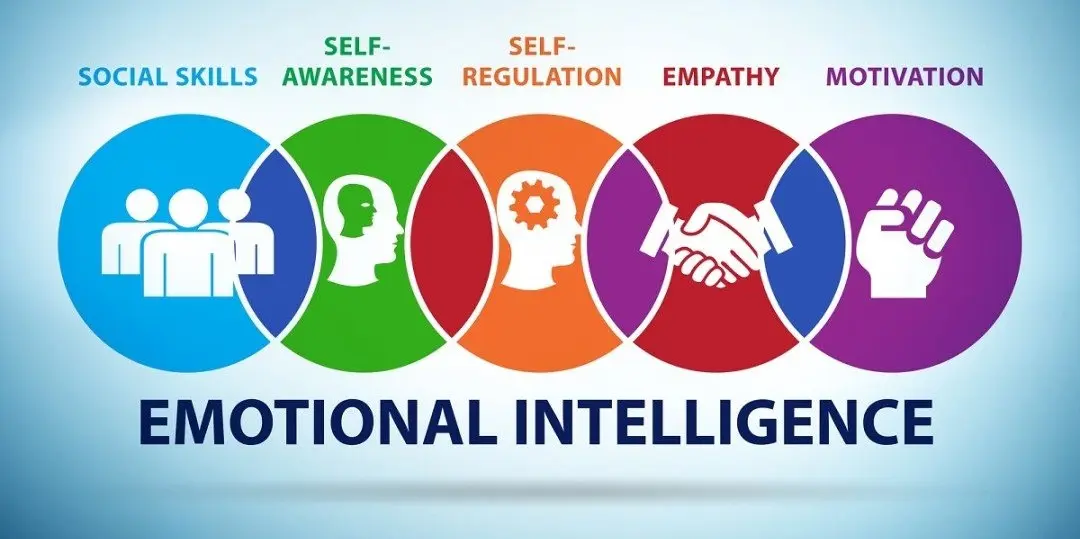Emotional Intelligence (EI) is essential in today’s workplace and refers to one’s ability to recognize, understand and manage both his or her own emotions and those of others. EI professionals typically possess higher EI scores which allow them to more successfully lead teams by inspiring empathy while leading effectively with empathy and understanding.
Daniel Goleman is a well-known psychologist who popularized the concept of emotional intelligence (EI). His studies demonstrated how EI influences interpersonal relationships and plays an essential part in professional career advancement; individuals able to self-regulate and empathize with colleagues generally have greater opportunities for career success and personal fulfillment.
As workplaces evolve, the importance of emotionally intelligent employees becomes clearer. Organizations which promote an EI culture experience numerous benefits such as improved communication, reduced conflict resolution costs and greater morale – thus making emotional intelligence essential in today’s work environment. Recognizing its benefits is therefore beneficial and essential in succeeding today’s office culture.
Emotional Intelligence for Beginners
Understanding emotional intelligence (EI) is central to workplace success. EI involves awareness of oneself and others, self-management strategies and social abilities; in this section we look at what EI and emotional quotient (EQ) mean as well as its historical background as well as methods for measuring it.
Understanding EI and EQ
Emotional Intelligence refers to an ability to recognize, comprehend and control one’s emotions as well as those of others. It encompasses five core components.
- Self-Awareness: Understanding personal emotions and their effects.
- Self-Regulation: Regulating emotional responses in response to changes.
- Motivation: Leveraging emotions towards accomplishing specific goals.
- Empathy: Recognizing emotions of others.
- Social Skills: Building meaningful relationships while effectively managing interactions.
EI (Emotional Quotient or “EQ”) measures emotional intelligence (EI). A high EI can lead to improved communication, teamwork and leadership capabilities that contribute to workplace success.
Historical Perspective and Models
Emotional intelligence (EI) achieved widespread attention during the 90s thanks to psychologist Daniel Goleman and his work. Goleman proposed that EI is just as essential to professional and personal success as traditional intelligence (IQ), providing models of EI with emotional competencies essential for optimal performance.
Multiple other models have surfaced over time, such as Mayer and Salovey’s four-branch model which emphasizes emotions appraisal and regulation. Gaining an appreciation of EI in organizational environments through understanding its history.
Evaluating Emotional Intelligence
Assessing emotional intelligence requires numerous methods, from self-report questionnaires and 360deg feedback tools, such as Emotional Quotient Inventory (EQ-i). Such assessments give insight into an individual’s emotional competencies.
Training programs often focus on increasing emotional awareness and building emotional strengths for their participants. Participants gain techniques for self-regulation and empathy development as part of the program, with regular assessments done to measure progress toward developing emotional intelligence (EI). By emphasizing assessments organizations can foster an emotionally intelligent culture.
Emotional Intelligence in Professional Settings
Emotional intelligence plays an essential role in shaping various aspects of workplace. It influences leadership, communication and team dynamics – all contributing to creating a productive work environment.
Influencing Leadership and Management Practices in Malaysia
Emotionally intelligent leaders are more successful at leading their teams effectively. Being self-aware helps these leaders manage their emotions more easily, which in turn aids decision making as well as bettering conflict resolution skills.
Emotionally intelligent leaders possess an empathetic connection with their employees, meaning that they understand their feelings and viewpoints. As a result, this promotes trust between employees and fosters open dialogue – leading to improved leadership capabilities which create an enjoyable work environment where every member feels appreciated.
Communication and Cooperation in Teams
Effective communication is at the core of every workplace environment. Emotional intelligence plays a pivotal role in improving interpersonal communications by helping individuals recognize nonverbal cues and emotional signals as non-verbals; fostering collaboration.
Team members with high emotional intelligence excel at managing conflicts more successfully, actively listening and validating others’ emotions to foster an atmosphere of respect. By developing improved communication skills, employees can more freely express ideas which often leads to innovative solutions and strengthened teamwork.
Enhancing Work Environment
Employee morale tends to increase in workplaces that prioritize emotional intelligence. When employees feel understood and supported in the job environment, job satisfaction increases accordingly – providing an atmosphere which fosters collaboration and adaptability during times of challenge.
Managers with emotional intelligence can effectively use stress management. By being attentive to their team’s emotional state and creating strategies to alleviate workplace anxiety, such managers can implement proactive plans which lead to enhanced productivity and employee well-being.
Impact on Career Advancement and Success
Emotional intelligence plays an integral part in career success. Individuals with high emotional IQ tend to be seen as more competent; they’re better prepared for leadership roles within organizations, and advance more rapidly within them.
Their ability to adapt quickly to social situations and successfully manage relationships provides a distinct competitive edge. Their mastery in networking and maintaining professional relations often opens doors of opportunity; furthermore, as they make well-considered decisions and efficiently address problems on the job, their performance often outshines that of peers allowing for career expansion and advancement.





















